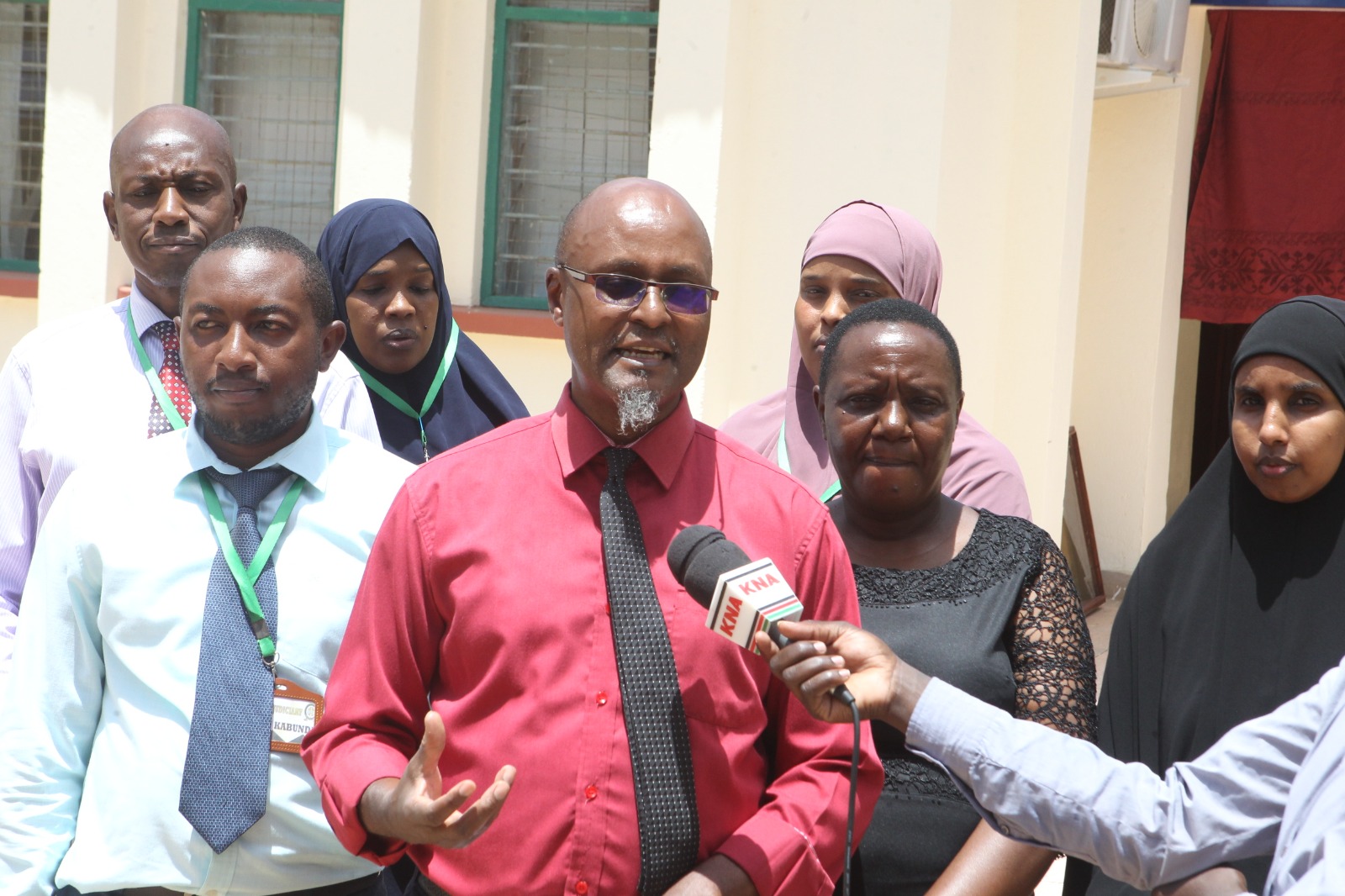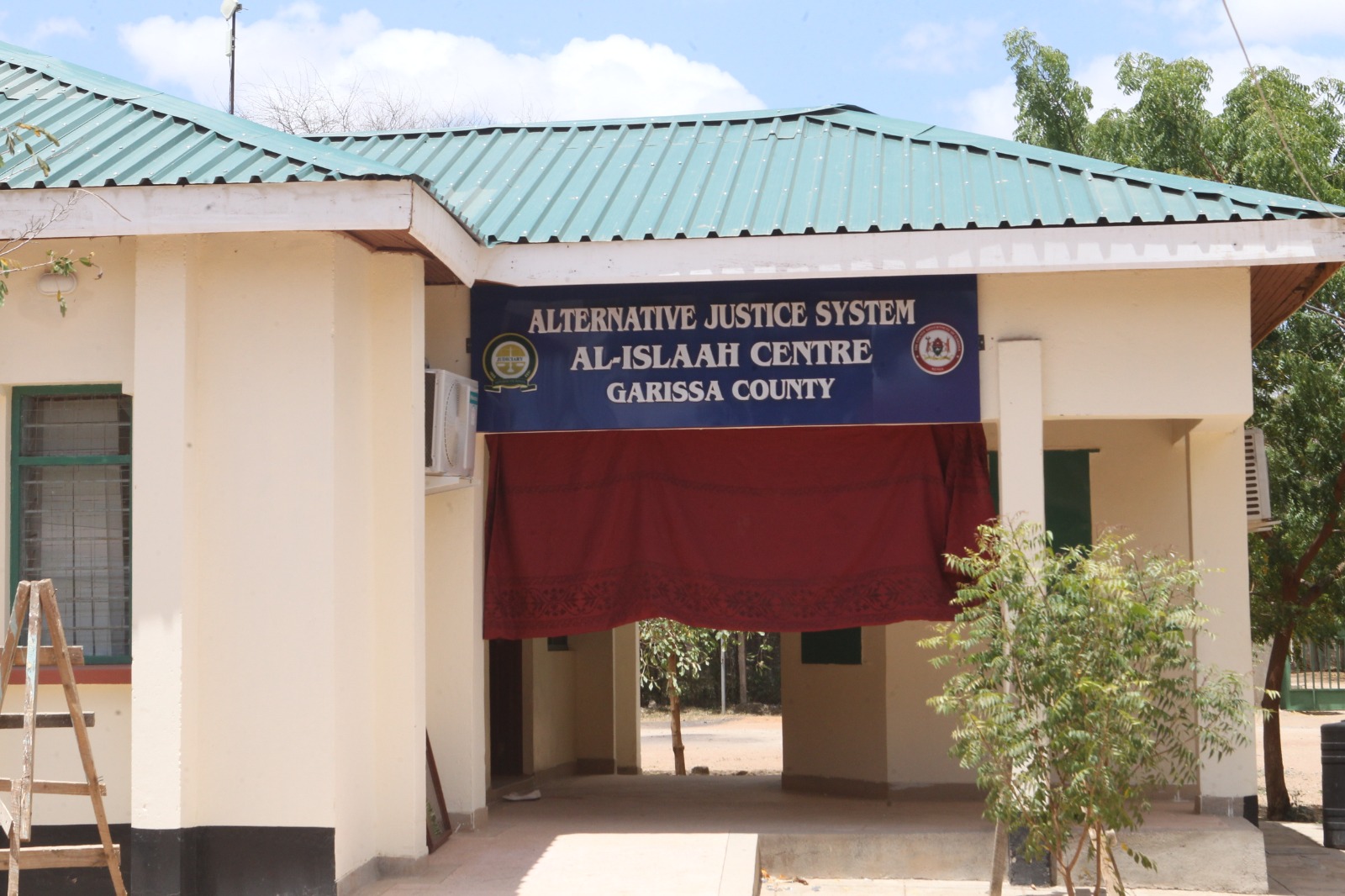 Garissa law court’s Chief Magistrate Thomas Mwangi speaking
to the press.
Garissa law court’s Chief Magistrate Thomas Mwangi speaking
to the press. The new Garissa Alternative Justice System office that is
set to be opened by CJ Martha Koome.
The new Garissa Alternative Justice System office that is
set to be opened by CJ Martha Koome.
Chief Justice Martha Koome will on Tuesday launch the Garissa Alternative Justice System (AJS), paving the way for residents to resolve disputes outside conventional courts.
Speaking to the press at Garissa Law Courts after a tour of the new AJS facility, Chief Magistrate Thomas Mwangi urged locals to embrace the initiative once it is unveiled.
“AJS is a win–win situation. There is no loser because everybody wins,” Mwangi said. “It is speedy, avoids lengthy court procedures, and offers a doorway where parties themselves choose how to resolve their disputes.”
Mwangi explained that the Garissa AJS will adopt the Maslah model rooted in Somali culture, noting that elders who will preside over cases have already been sensitised and trained on their roles. He emphasized that some matters remain beyond their mandate under the law.
He added that the system is anchored on social justice, ensuring vulnerable groups such as women, children, people with disabilities, and marginalised communities access fair dispute resolution.
Local elders who will sit in the Garissa AJS panel, including James Maina and Mohamed Aden, welcomed the launch but appealed for recognition and support from the Judiciary.
“As we are all aware, AJS has been serving justice to people in communities who were otherwise afraid of going to the courts because of the long processes and costs. It is only good that we are also considered and paid,” said Aden.
Maina added: “We should be made judicial officials because what we are doing now is voluntary and has no remuneration. We are helping courts reduce backlogs and sometimes handle cases even at night or in villages.”
The Judiciary officially recognised Alternative Justice Systems in 2020 through the launch of the AJS Policy, creating a constitutional and legitimate framework for such mechanisms.
Since then, AJS halls—known as Ukumbi—have been established in several counties including Nakuru, Kajiado, Trans Nzoia, and Mombasa. Garissa now joins that list, with the launch set for September 2.












